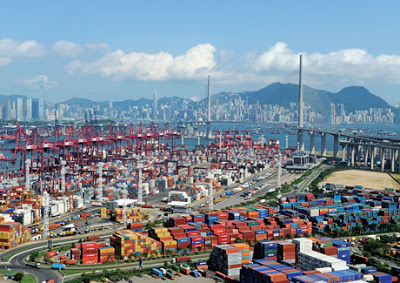Xinhua
China’s third batch of Free Trade Zones (FTZs) in Liaoning, Zhejiang, Hainan, Hubei, Chongqing, Sichuan, Shaanxi has yielded fruitful results in the past four years since their official launch on April 1, 2017 and become pioneers for a new round of reform and innovative development in China.
This was reported by the Xinhua-run Shanghai Securities News on Tuesday.
Over the past four years, 63,000 enterprises registered at China (Liaoning) Pilot FTZ, with registered capital of 630 billion yuan, a total of 256 major projects were also signed at the FTZ, of which 119 has been put into operation.
The FTZ in Shaanxi has attracted 83,528 market entities to settle down from April, 2017 to the end of March, 2021, including 57,517 new enterprises with an additional registered capital of 931.237 billion yuan.
Four years on, the total number of newly registered enterprises in the Zhengzhou Area of China (Henan) Pilot FTZ has exceeded 72,000, more than three times of that before the establishment of the FTZ and utilizing up to about 2.4 billion U.S. dollars of foreign capital.
Gao Feng, spokesperson of the Ministry of Commerce (MOC) told a press briefing earlier this month that the pilot FTZs are also explorers for institutional innovation, up till now, 1,055 tasks set out in the overall plan for the FTZs has been basically implemented, and more than 150 achievements of institutional innovation have been replicated and promoted across the whole country.
Feng, stated emphasis on institutional innovation, the seven FTZs has scored remarkable success in promoting trade and investment liberalization, facilitation, advancing reform, propelling opening up, development of competitive industrial chains and serving major national strategies.
For example, the FTZ in Zhejiang focuses on the opening up and development of oil and gas industry chain, has gathered more than 7,500 oil and gas enterprises.
In 2020, the FTZ’s supply of marine fuel oil rose 15.1 per cent year on year, with the oil and gas throughput reaching 127 million tonnes.
The Henan FTZ actively pushes forward the construction of Silk Road in the air, overland Silk Road, online Silk Road, and maritime Silk Road.
Last year, the FTZ saw the transaction value of its cross-border e-commerce hit 174.5 billion yuan, up 10.4 per cent year on year.
Despite the impact of the COVID-19 pandemic, China (Hubei) Pilot FTZ managed to boost exports of biomedicine and products of emerging industries.
In 2020, the FTZ’s foreign trade increased 3.1 per cent year on year.
After several rounds of expansion, China now has 21 FTZs, speaking of whether the country would add more FTZs during the 14th Five-Year Plan period from 2021 to 2025.
Tang Wenhong, director of FTZ and free trade port department under the MOC, said that the ministry would act in accordance with the deployment of the central government and conduct a comprehensive study based on evaluation on the construction achievements of the 21 FTZs.




